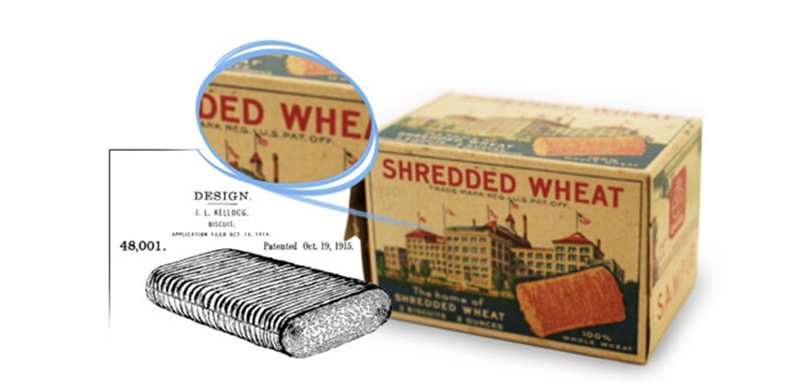


Adding a Patent Pending Number to your product keeps everyone guessing what they may not copy for up to 18 months. Most foodstuff (e.g. chocolates), software, mobile apps, business methods and games are successful / popular today because when they were launched, the Patent Pending Number kept knock‐offs out of the market.

all owe a great deal of their success to the "breathing space" provided by Patent Pending Numbers.
Patent Pending Numbers used to be the privilege of large, wealthy companies. Iptica now makes Patent Pending Numbers available to you online!
For only $199, anyone may mark their product, packaging and advertising material PATENT PENDING. And, the process takes only one day.
Your Patent Pending Number application will remain secret. In 12 months' time, you may file a complete patent in each country in which you intend to obtain a registered patent. You will not enjoy enforceable patent rights in a country until your complete patent is finally registered in that country (which could take 4 or more years). But, in the meantime, you are free to claim that your product is "Patent Pending" in 177 countries (basically, worldwide).
The Iptica online application system is perfect for software and app inventions, business methods and generators of electricity ‐ categories of inventions that patent attorneys tend either to shy away from, or to charge high prices for. To apply, you need only be a national of one of the following countries:
Afghanistan, Albania, Algeria, Andorra, Angola, Antigua and Barbuda, Argentina, Armenia, Australia, Austria, Azerbaijan, Bahamas, Bahrain, Bangladesh, Barbados, Belarus, Belgium, Belize, Benin, Bhutan, Bolivia (Plurinational State of), Bosnia and Herzegovina, Botswana, Brazil, Brunei Darussalam, Bulgaria, Burkina Faso, Burundi, Cambodia, Cameroon, Canada, Central African Republic, Chad, Chile, China, Colombia, Comoros, Congo, Costa Rica, Cote d'Ivoire, Croatia, Cuba, Cyprus, Czech Republic, Democratic People's Republic of Korea, Democratic Republic of the Congo, Denmark, Djibouti, Dominica, Dominican, Republic, Ecuador, Egypt, El Salvador, Equatorial Guinea, Estonia, Finland, France, Gabon, Gambia, Georgia, Germany, Ghana, Greece, Grenada, Guatemala, Guinea, Guinea‐Bissau, Guyana, Haiti, Holy See, Honduras, Hungary, Iceland, India, Indonesia, Iran (Islamic Republic of), Iraq, Ireland, Israel, Italy, Jamaica, Japan, Jordan, Kazakhstan, Kenya, Kuwait, Kyrgyzstan, Lao People's Democratic Republic, Latvia, Lebanon, Lesotho, Liberia, Libya, Liechtenstein, Lithuania, Luxembourg, Madagascar, Malawi, Malaysia, Mali, Malta, Mauritania, Mauritius, Mexico, Monaco, Mongolia, Montenegro, Morocco, Mozambique, Namibia, Nepal, Netherlands, New Zealand, Nicaragua, Niger, Nigeria, Norway, Oman, Pakistan, Panama, Papua New Guinea, Paraguay, Peru, Philippines, Poland, Portugal, Qatar, Republic of Korea, Republic of Moldova, Romania, Russian Federation, Rwanda, Saint Kitts and Nevis, Saint Lucia, Saint Vincent and the Grenadines, Samoa, San, Marino, Sao Tome and Principe, Saudi Arabia, Senegal, Serbia, Seychelles, Sierra, Leone, Singapore, Slovakia, Slovenia, South Africa, Spain, Sri Lanka, Sudan, Suriname, Swaziland, Sweden, Switzerland, Syrian Arab Republic, Tajikistan, Thailand, the former Yugoslav Republic of Macedonia, Togo, Tonga, Trinidad and, Tobago, Tunisia, Turkey, Turkmenistan, Uganda, Ukraine, United Arab Emirates, United Kingdom, United Republic of Tanzania, United States of America, Uruguay, Uzbekistan, Venezuela (Bolivarian Republic of), Viet Nam, Yemen, Zambia and Zimbabwe.
South African is expected to implement the Madrid Protocol in mid‐2020. Once implemented, trademarks filed by foreigners into South African; and trademarks filed by South Africans internationally, will reduce in cost by around 90%. We suggest delaying trademark foreign trademark filings until this date.
(Updated 2017)
Articles: Patent issues